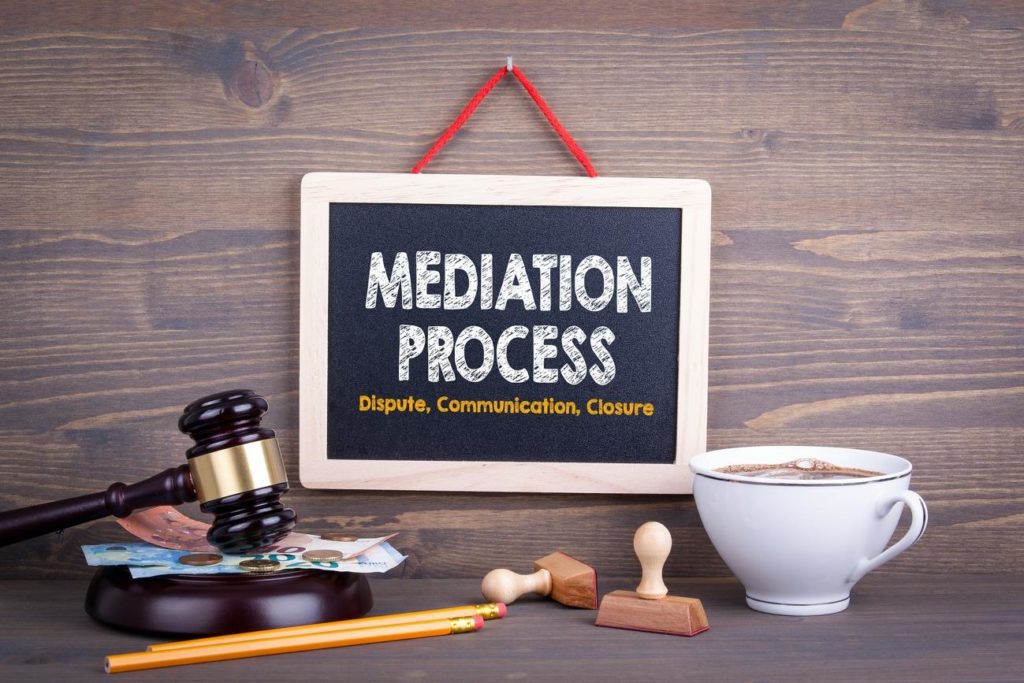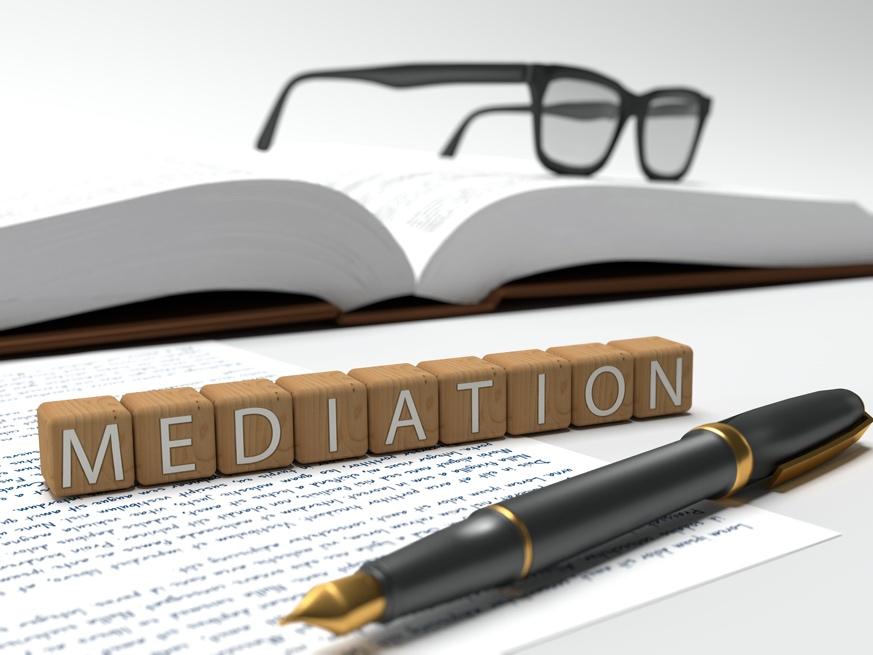When you imagine the divorce process, you may picture a contentious and public procedure in a courtroom, but conflict-ridden litigation isn’t your only option.
You and your spouse can achieve an amicable divorce privately and peacefully through divorce mediation.
This article will walk you through how to prepare for divorce mediation.
Divorce mediation can be a helpful tool for individuals looking to end their marriage amicably in Colorado; however, it helps to know how to prepare for the mediation process beforehand.

Understand Colorado’s Mediation Requirements
In Colorado, mediation is not mandatory; however, a judge may require divorce mediation under certain circumstances where agreements cannot be reached, or issues are contested.
You can start mediation at any point during the divorce process, even before you file for divorce or after the divorce proceedings have ended.
If you want to avoid a contested divorce, you and your spouse may go through mediation before filing for a separation agreement. Mediation may also become necessary after finalization for the following situations:
- A parent claims the other fails to comply with child custody or decision-making agreements.
- A parent claims the other fails to spend child support to benefit the child.
- Parents cannot agree on how to pay for certain expenses, such as college education costs.
Most Colorado judges will require mediation during the divorce process to help you and your spouse reach an agreement before divorce proceedings.
Consider the Benefits of Divorce Mediation
Settling a divorce through mediation rather than litigation can offer many benefits for couples who want to separate:
- Privacy and confidentiality: Public divorces can negatively impact reputations and expose financial and other information you may prefer to keep private. Mediation, on the other hand, takes place privately and maintains confidentiality for both you and your spouse.
- Control over outcomes: In divorce litigation, the judge can make decisions that may be unsatisfactory for you or your spouse, but the mediation process requires both parties to agree to the resolution of each issue.
- Objective view: Mediators serve as objective third parties who can help you and your spouse see each other’s perspectives and offer solutions from a place of logic rather than emotion.
- Child well-being: Going to court isn’t just stressful for you. Children caught between parents in a contested divorce may experience more anxiety and stress compared to mediation.
- Speed: Contested divorces often take more time because you and your spouse must wait for the court to schedule hearings. Mediation may help dissolve your marriage more quickly because you can operate on your schedule.
- Cost: Divorces resolved through mediation often cost less because they don’t involve the same attorney hours, court fees, and other expenses.
Divorce mediation allows both you and your spouse to avoid the expense and stress of a contested divorce.
Understand When Mediation Is Inappropriate
Despite its benefits, mediation doesn’t suit all situations.
For mediation to work, both you and your spouse should feel confident and safe expressing your interests and opinions, but not all relationships have the appropriate balance of power.
Suppose your relationship with your spouse involves:
- Physical, sexual, verbal, or emotional abuse.
- Intimidation.
- Untreated substance abuse disorder.
- Unequal distribution of control.
In that case, mediation may not provide an effective method for divorce.
However, you may proceed with mediation with an abusive or controlling spouse if protective measures are in place.
For example, a mediator may meet with you and your spouse separately to facilitate negotiations without putting you in a situation where you feel unsafe.
Know Your Rights During the Mediation Process
It’s essential to understand the following when preparing for divorce mediation to ensure your rights aren’t violated:

- Both you and your spouse must agree to each term.
- The mediator may not force decisions on either you or your spouse.
- The mediator may not serve as the divorce lawyer for either you or your spouse.
- The mediator may not offer legal advice to either you or your spouse.
- The mediator may not testify in court on either your or your spouse’s behalf.
- Terms established in a Memorandum of Understanding are legally binding if both you and your spouse sign the document.
- The mediator, your spouse, and you may not disclose anything discussed or written during mediation except signed agreements.
Record What You Want to Achieve in the Divorce
When considering how to prepare for divorce mediation, it’s essential to establish your interests in the separation.
You may think you know what you want to achieve during the divorce mediation process, but writing down your priorities will ensure nothing is neglected or forgotten.
When listing your interests, determine the most important items you want to prioritize.
For example, you may not be willing to compromise on having equal parenting time for your children, so that would be a top priority.
Then, record the items you’re willing to negotiate before and after the divorce.
When determining your interests in the divorce, use reason and consider your spouse’s perspective.
Remember that mediation is most successful when you and your spouse approach each session with a willingness to participate.
Competitive power plays prevent compromise, but understanding your priorities can help you avoid unnecessary conflicts.
Gather Necessary Documents
Having the right documentation on hand helps you ensure the equitable distribution of financial assets.
Divorcing couples often benefit from voluntary financial disclosures of their assets, debts, and income.
Gathering these documents beforehand prevents the lengthy discovery process should the divorce go to court.
Documents to collect before divorce mediation include the following:
- Certified copy of the marriage certificate
- Copies of marital agreements (prenuptial or post-nuptial agreements)
- Income statements (W2, 1099, and others)
- Statements for bank accounts, investments, and other assets
- Liability statements for loans, credit cards, and other debts
- Previous related court filings
If you are unsure whether or not to include a document, your mediator can guide you on which documents you need to settle the terms of your divorce.

Hire an Experienced Divorce Mediator
Choosing the right mediator can have a significant impact on reaching amicable agreements.
You want to select a mediator with the proper training and experience to maintain an objective but empathetic outlook and facilitate successful compromises.
Before hiring a mediator, investigate their experience in the field and ask them about their mediation style.
The ideal choice will have a history of successful mediation and a passion for helping people avoid the animosity and conflict associated with divorce.
Consider Divorce Counseling
Mediation provides a private space where you can openly discuss the terms of your divorce, but this open dialogue can turn ugly if you or your spouse fails to maintain calm communication.
It’s important to leave emotions at the door, but the stress, anger, shock, and grief of divorce can make this challenging.
If you’re wondering how to prepare for divorce mediation with high emotions, consider divorce counseling.
One way to remove emotion from the mediation equation is to create a safe space to share how you feel.
If you and your spouse can safely share your emotions in a separate therapy or divorce counseling session, you may have an easier time keeping your cool during mediation sessions.
Whether or not divorce counseling suits your situation is a personal decision.
Some separating spouses benefit extensively from this type of therapy and find a sense of closure, but others may resent and resist counseling, causing further stress in the divorce process.
Don’t Involve Your Children
Mediation can help reduce the divorce’s impact on your children, but you should be careful not to involve them intentionally or unintentionally.
Protecting your kids includes not allowing them to witness any contention between you and your spouse.
Ensure your children have one-on-one time with each parent throughout the process (if appropriate), and avoid making negative remarks about the divorce or your spouse.
Practice Self Care
Going through a divorce can significantly strain your mental and emotional health, so it’s critical to take care of yourself throughout the entire process.
Mediation helps prevent the contention of a court battle, but you may still feel drained or overly anxious walking out of a session.
Keep the following self-care tips in mind during a divorce to reduce stress and encourage good health:
- Eat healthy meals that give you energy.
- Get plenty of sleep.
- Visit with friends and family.
- Get regular exercise.
- Practice relaxation and mindfulness.
- Practice gratitude.
Remember to be patient with yourself and show yourself compassion.
It’s normal to feel stressed, anxious, sad, angry, and unsure of what’s to come.
Give yourself time to adapt to your new reality and process your thoughts and feelings.
Summary
Many people think the divorce process must include a conflict-driven court battle, but mediation provides another way to reach mutually acceptable agreements regarding a separation.

In Colorado, mediation is a standard part of the process often mandated by a judge or county law.
Divorce mediation services can help you save time and money on your divorce and give both you and your spouse more control over the separation of assets, child custody, and other aspects.
Knowing how to prepare for divorce mediation can prevent time-consuming procedures, such as the legal discovery process for financial information if your divorce goes to court, and can help you achieve an amicable divorce.
An experienced mediator can help your divorce go as smoothly as possible by suggesting mutually beneficial solutions and using tested strategies to ensure productive communication.
When considering things you need to do before filing for divorce, remember to take care of yourself.
A healthy diet, exercise routine, and sleep schedule can go a long way in helping you process the intense emotions of a divorce.
